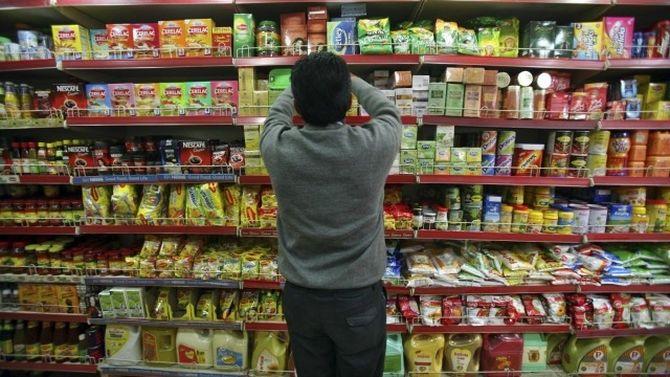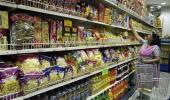Recent data from market analytics firm Nielsen shows that the rural market in the country’s 630,000-odd villages is pulling down the overall FMCG business.

Those expecting a resurgence of consumer confidence once the upheaval of demonetisation and GST settled, have had their hopes squashed by rural India where demand for fast-moving consumer goods remains weak.
The recent data from market analytics firm Nielsen shows that the rural market in the country’s 630,000-odd villages is pulling down the overall FMCG business.
In the April-June quarter, traditionally a strong period after the slump of the winter months, growth in rural markets was the lowest since early 2018.
FMCG product sales in the rural market in this quarter grew by a meagre 5.9 per cent. Coupled with a 4.4 per cent price hike, the total value growth in the villages where over 65 per cent of the population lives, grew 10.3 per cent, or 9.7 percentage points lower than July-September 2018.
Three quarters ago, the rural market had grown by 20 per cent by value and a staggering 16.3 per cent by volume. As a result of the rural figures, overall growth in the Rs 3.5 trillion FMCG market has also slumped.
While in the September 2018 quarter, the overall growth stood at 16.2 per cent, this has now come down to 10 per cent.
Nielsen said that food and personal care were the categories most affected by the slowdown. While the value growth of food and personal care in the calendar year 2018 was 15 per cent and 12 per cent respectively, this is expected to fall to 13 per cent and 11 per cent in the current calendar year, said the agency.
Rural sales growth, which was ahead of urban sales growth by at least 400 to 700 basis points for most companies in early to mid-2018, has now slowed to just 90 basis points over urban.
Growth in urban markets has also slowed during the April-June quarter from 10.9 per cent growth by volume to 6.4 per cent but its impact remains much lower than that of the rural market.
According to Nielsen, rural households contributed 57 per cent to this ongoing slowdown. This is significant, given the fact that the revenue contribution of the rural market to the overall market is 30 per cent -- much lower than that of the urban market.
The sales and profits of most FMCG and retail firms have been weak of late, showing signs of stress. Rural wages and wholesale crop prices, which can be an accurate barometer, haven’t really picked up by much between January and July this year from the slump seen a few years ago.
Data from agmarket.nic.in show that the average wholesale price of key kharif and rabi crops such as channa, soybean and mustard have been below the Minimum Support Price.
FMCG sales executives say that, in spite of the government’s recent measures to streamline crop prices and offer Rs 6,000 a year dole to farmers, poor consumer confidence has hit the market.
“People are overly cautious while taking purchasing decisions. Most consumers are buying only when they need and not what they can afford at the moment,” said a sales manager with a major FMCG company.
Wage growth too has been slack and experts say this is a continuation of the weak trend seen over the last few years. Data from India Ratings in a report published last year showed that average real rural wage growth (agriculture and non-agriculture) slumped from 11.18 per cent in FY13-FY15 to just 0.45 per cent in FY16-FY18.
“Rural wages should not be seen in a one-year horizon because there can be aberrations in between,” said Sunil Kumar Sinha, principal economist and director of India Ratings.
Suresh Narayanan, CMD, Nestle India, said an impetus was needed.
“India has consistently posted stable growth in the past few years with low inflation. However, with inflationary pressures now growing and the forecast of a below-normal monsoon, farm incomes will be affected. Giving an impetus to rural households is the need of the hour,” he said.
According to Kishore Biyani, founder and CEO of the Future Group, ‘rural incomes have to rise so that the consumption slowdown in these markets is addressed’.
He added: “A revival package for rural areas will help and with a stable government in power, I think, a lot can happen.”
Anand Kripalu, managing director and CEO, Diageo India, is hoping for more reforms.
“A stable government is welcome for the nation and economy. We hope in its second term the government will usher in the next phase of reforms. In sectors that contribute significantly to state GDP (such as beverages and alcohol), we look towards the federal government to encourage states to bring about comprehensive regulatory reform,” said Kripalu.
Nielsen has lowered its growth forecast for the domestic consumer goods market for the 2019 calendar year by 200 basis points, citing weak sentiment.











 © 2025
© 2025